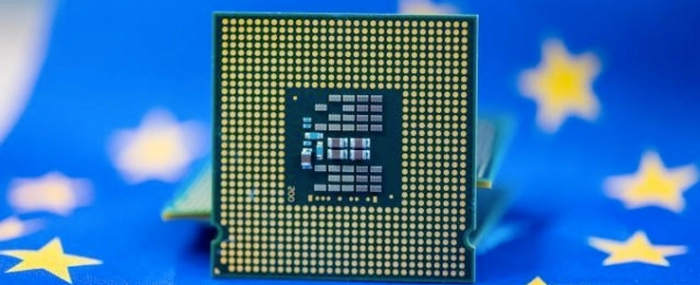
EU Parliament adopt legislation to boost EU chips industry
Last week, the European Parliament’s Committee on Industry, Research and Energy (ITRE) voted to approve the proposals for the EU Chips Act made by the European Commission.
It was back in early February 2022 when the EU Commission presented its European Chips Act – aiming to strengthen manufacturing activities in the EU and support the scale-up and innovation of the whole value chain and address the security of supply.
In the original announcement made by the commission, the Act aims to mobilise more than EUR 43 billion of public and private investments and set measures to "prevent, prepare, anticipate and swiftly respond to any future supply chains disruption". The Act is to be seen as a step that will enable the EU to reach the goal of doubling its current semiconductor market share to 20% in 2030.
Since then things have slowly been moving forward or stood still depending on who you ask. Last time Evertiq reported on the EU Chips Act, the European Council had adopted its position and that the European Parliament’s Committee on Industry, Research and Energy (ITRE) was expected to vote on the Act in January 2023. Well, now they have.
The ITRE adopted two draft bills: one on the “Chips Act” that aims to bolster technological capacity and innovation in the EU Chips ecosystem and a second one on the Chips Joint Undertaking to increase investments for developing this type of European ecosystem, a press release reads.
Members of the European Parliament gave quantum and next-generation semiconductor chips more attention in their amendments to the Chips Act. For the purpose of addressing the skills gap and luring in fresh talent for research, design, and production, a network of competence centres would be established. The measure would also encourage initiatives that aimed to increase the EU's supply security by attracting investment and building up production capacity.
“We want the EU Chips Act to establish Europe as an important player in the global semiconductors arena,” says Dan Nica, rapporteur on the Chips Act in the press release. “Not only does the budget need to be commensurate with the challenges and funded through fresh money, but we want to ensure that the EU is leading in research and innovation, that it has a business-friendly environment, a fast permitting process and invests in a skilled workforce for the semiconductor sector. Our goal is to ensure growth in Europe, prepare for future challenges and have in place the right mechanisms for future crises".
What’s next?
The Chips Act's negotiation mandate will be revealed at the start of the plenary session in Strasbourg, which runs from February 13–16. If there is no request to put the decision to enter into negotiations to the plenary vote, Parliament will be able to start talks with the Council. Parliament will hold a vote on the Chips Joint undertaking proposal during the same session. The proposal for the Chips Joint Undertaking will be put to a vote by Parliament during the same session.


